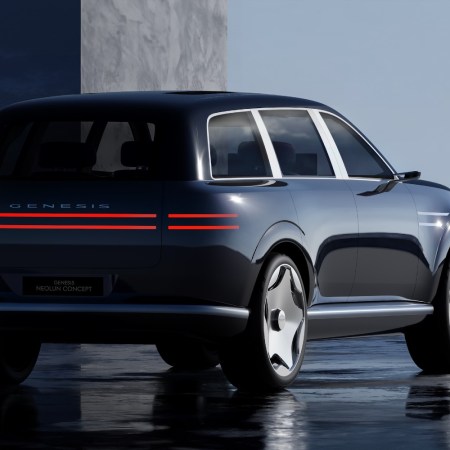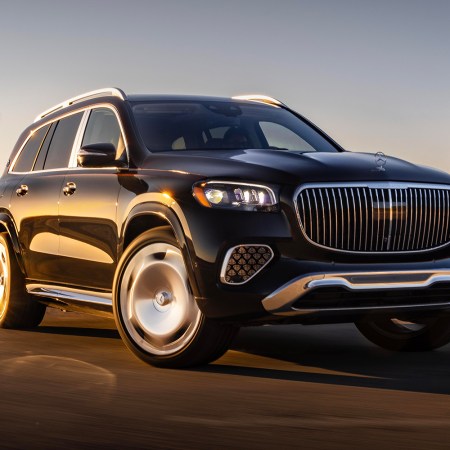It’s a myth that the automotive industry is a meritocracy. As in any commercial endeavor, brands are built not just on product but also image, and the latter is far more malleable, if occasionally just as expensive to develop over time, as the former.
This is especially true in the luxury segment, where customers are buying a vehicle as much for the statement it makes to peers as the experience it offers the driver themself. It’s here that carefully woven stories about heritage, craftsmanship and prestige do as much to move metal out the dealership door as do more tangible traits like, say, quality and capability.
But as technology continues to democratize performance and features, what was once the sphere of the upper tier is now more readily accessible to any company with deep enough pockets to dip a toe in the pool. Should a major player choose to take the full plunge, as Hyundai has done with its nascent Genesis luxury brand, then that cannonball can cause ripples destined to disrupt the established order and lay bare all of the above to customers suddenly asked to make a choice between mythology and reality when making their monthly payment.
Especially when the car doing the asking is the 2020 Genesis G70.

How the Germans Lost Their Edge
Before same-same SUVs became the order of the day, the real battle for the hearts and minds of premium buyers was taking place in the compact sedan trenches. It was here that BMW made its name as a purveyor of performance four-doors that kept drivers connected to the road in a way few other brands could brag about, launching a three-way struggle with Audi and Mercedes-Benz that would play out for the next two decades.
Somewhere along the way, however, the Bavarian product planners in charge of BMW’s future decided that there was more money to be made in broadening its core audience to include those primarily interested in badge recognition and a reasonable lease payment, rather than back-road boogie. Thus began a new era for the company, one which saw significant financial success as it gradually turned its back on enthusiasts and began reaping the cash that came with this strategy.
One can’t begrudge the last independent automaker of any real size choosing volume as a financial lifeline. At the same time, it’s important to recognize that by deciding to insulate its buyers against the more direct connection prized by past customers, it was opening up the door of its dominance just enough to signal an opportunity to anyone willing to walk a different path. Given that both Mercedes-Benz and Audi had made similar concessions, that meant only an outsider to the Teutonic hegemony could fill the gap.
Daring to Be Different
Enter the Genesis G70. Introduced in 2017 as the third member of the Genesis family following Hyundai’s decision to spin the nameplate off as a standalone marque, the G70 was the first Genesis to skip over the more milquetoast Japanese luxury offerings from Lexus and Acura and directly challenge the Germans.
It did this by returning to a formula that had seemingly been forgotten by its would-be quarry: designing a chassis that was in constant conversation with the driver about the road below, matched with a drivetrain tuned to happily co-conspire in whatever shenanigans might present themselves outside of the daily commute. Pair that with sleek styling and a raft of the expected luxury amenities, and suddenly you have a newcomer presenting a version of what might have been had BMW stayed its original course.

That Genesis threw every ounce of engineering and design acumen it had at the G70 is evident. What’s even more impressive is the fact that the car overachieves at its stated mission. This is true whether it’s found at the entry-level (where its turbocharged four-cylinder offers the last manual gearbox in its class) or when equipped with its 3.3-liter twin-turbo V6 whose 365 horsepower and 376 lb-ft of torque shove its 0-60 mph time below five seconds.
Not only does the G70 offer class-competitive thrust, but it dances with an engaging joy that’s far more difficult to access in its more insulated rivals. The car truly comes alive on any road that does the same, and it’s safe to say that Genesis is now setting the standard for sport-sedan athleticism. Inside the car, the rear seat may not offer the same accommodating volume as those of its German competitors, but cabin design and the quality of the materials are more than up to par, with a simple yet classy presentation.
Dug in for Battle
The final missile in the Genesis salvo is aimed squarely at customers still on the fence: a price point for the G70 that undercuts every other comparable auto while providing just as many, if not more features. For $35k, the sedan is a steal, and even stuffed to the gills it’s difficult to spend much more than $50,000 on the vehicle. What’s more, it’s the best kind of “bargain”: one that asks buyers to make no real-world concessions as a result of their decision.
But back to that mythology. It’s here that Genesis makes no special claims, embracing its newness rather than tapping into any pre-existing brand story that might counter the decades-long head-start enjoyed by its prestigious adversaries. The company has placed product front and center, a strategy that was intended to be bolstered by a high-end dealership strategy that is still being worked out between the mothership and a few hundred upset Hyundai stores hoping to get in on the action.
It’s this disconnect between the quality of the car and the freshness of the brand that has proven to be the biggest hurdle for Genesis to climb. Educating luxury buyers about its existence is a time-consuming effort, and every second the clock ticks, yet another prospective customer has headed for the familiar embrace of the Silver Star, Roundel or Four Rings while Hyundai continues to shovel cash into the gaping maw that is building a name almost entirely from scratch.
Fluctuating sales figures have a savior on the way, in the form of the first Genesis SUV, the GV80, which will be available later this year. From a purely business point of view, it’s the vehicle Genesis should have launched first to take advantage of the current sport-utility dominance at all levels of the industry. That the company instead decided to make the strongest of statements with the G70 — to take the game directly to the former class leaders, steal their ball and then dunk on all three — shows just how serious Genesis is about making a statement.
This article was featured in the InsideHook newsletter. Sign up now.
























